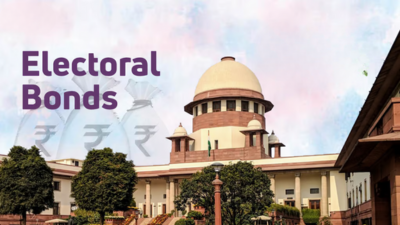The Supreme Court has dismissed a review petition challenging its February 15 judgment that struck down the Electoral Bonds Scheme [Mathews J Nedumpara & Anr v. Association for Democratic Reforms and Ors].
A Constitution Bench, comprising Chief Justice of India DY Chandrachud and Justices Sanjiv Khanna, BR Gavai, JB Pardiwala, and Manoj Misra, rejected the petition filed by advocate Mathews J Nedumpara. The Court stated:
“Application for listing the review petitions in open Court is dismissed. Delay condoned. Having perused the review petitions, there is no error apparent on the face of the record. No case for review under Order XLVII Rule 1 of the Supreme Court Rules 2013. The review petitions are, therefore, dismissed.”
The February 15 verdict unanimously quashed the Electoral Bonds Scheme, which allowed donors to anonymously contribute funds to political parties by purchasing bearer bonds from the State Bank of India (SBI). These bonds, available in various denominations, were intended solely for political donations.
The scheme was introduced in 2017 through the Finance Act, which also amended several other statutes, including the Reserve Bank of India (RBI) Act, the Income Tax Act, and the Representation of the People Act. These changes were made to facilitate the use of electoral bonds, and the Finance Act itself was passed as a money bill, bypassing the Rajya Sabha.
Several petitions were filed challenging the scheme and the amendments, arguing that they opened the door to unlimited, unregulated funding of political parties and violated citizens’ right to information. The petitioners also questioned the constitutionality of passing the Finance Act as a money bill.
In its February judgment, the Supreme Court held that the scheme’s anonymity violated the right to information and, by extension, the right to free speech under Article 19(1)(a) of the Constitution. The Court also ordered the State Bank of India to submit details of political party contributions made via electoral bonds to the Election Commission of India.
In the review petition, the petitioners argued that the Court had overstepped its role by acting as an appellate authority over Parliament’s legislative and executive decisions. They contended that the scheme had the potential to bring some level of transparency to political donations while maintaining donor confidentiality. However, the Supreme Court rejected these arguments, upholding its original judgment.

















